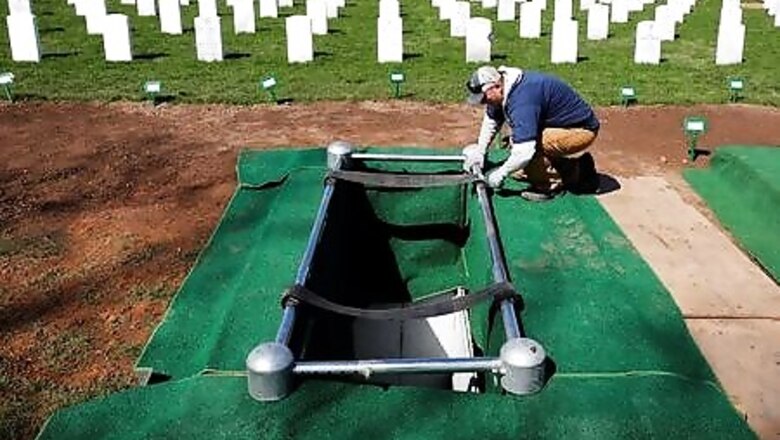
views
WILTON, Conn. Connecticut on Tuesday will release the results of an independent review of its early approach to nursing homes ravaged by the coronavirus pandemic, tackling the source of most of its deaths and the main blight on its COVID-19 response.
The review comes as Connecticut and other northeastern states like New York appear to have gained control over the virus, with infection rates among the lowest in the country and below thresholds for opening of schools.
But these states — the hardest hit early in the pandemic — are still coming to terms with their failure to prevent the virus from infiltrating nursing homes and other assisted living facilities in February, March and April, and are looking to create a playbook for a potential second wave in the fall.
The inquiry could also hold lessons for sunbelt states which have seen a surge in nursing home cases in recent weeks.
Unique in some ways, Connecticut’s experience could prove especially instructive. It adopted a novel approach to keeping discharged COVID-19 hospital patients from re-entering nursing homes and ousted its health commissioner in May, exposing bureaucratic infighting that may have hindered its response.
“By no means do we get the A grade,” said Sten H. Vermund, dean of the Yale School of Public Health. “I think most of us wished that we had been more aggressive and more savvy in predicting the inevitability of the wave through our state.”
More than 3,200 residents of Connecticut nursing homes and assisted living facilities have died from COVID-19, accounting for nearly three quarters of all virus-related deaths in the state.
Connecticut has the fourth highest per-capita coronavirus death rate for nursing homes, after Rhode Island, New Jersey and Massachusetts – all northeastern states, according to data from the U.S. Centers for Medicare and Medicaid Services.
But the death toll has in recent weeks slowed to a trickle, helped by nearly 2,000 onsite inspections and expansive testing of staff, Deidre Gifford, the state’s acting health commissioner, told Reuters. She also believes a move in April to set up facilities to exclusively take in discharged COVID-19 patients helped prevent re-introducing the virus in nursing homes.
Gifford said Connecticut was nevertheless encouraging the stockpiling of personal protective equipment in preparation for a second wave, which it aims to sidestep in part by getting travelers from hot spots to quarantine under threat of fines.
“There is a lot of COVID still in the country,” she said. “That’s obviously a concern that we are working hard to avoid.”
The review by Mathematica Policy Research, a Princeton, New Jersey-based firm commissioned by Connecticut, is the second independent probe by a state after New Jersey disclosed the results of its third-party inquiry into nursing homes in June.
The report to be unveiled on Tuesday is considered interim and will likely be supplemented by Mathematica next month.
New Jersey has enacted 19 proposals from its inquiry, including mandating that nursing homes have a senior level infection control specialist reporting to the chief executive and requiring them to report on staff taking sick leave or quarantined, a spokeswoman for the state’s health department said.
New York Governor Andrew Cuomo, who came under fire for mandating that nursing homes take back coronavirus patients discharged from a hospital as long as they could provide adequate care, has eschewed the idea of a independent review, saying such a probe would be political in nature.
Cuomo’s health department published its own report last month asserting that the policy was not to blame for the more than 6,000 nursing home deaths in the state. The report argued that staff had spread the virus in the facilities.
Disclaimer: This post has been auto-published from an agency feed without any modifications to the text and has not been reviewed by an editor














Comments
0 comment